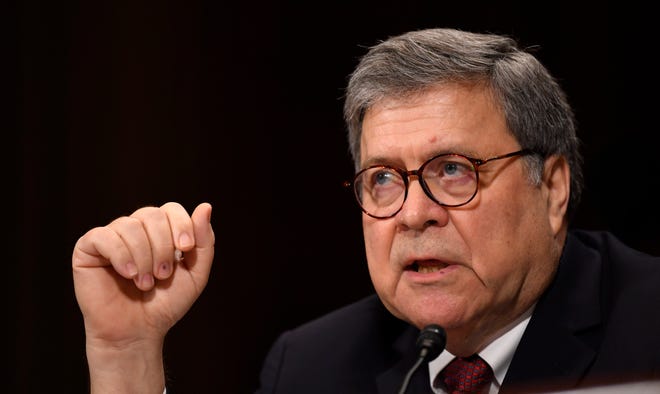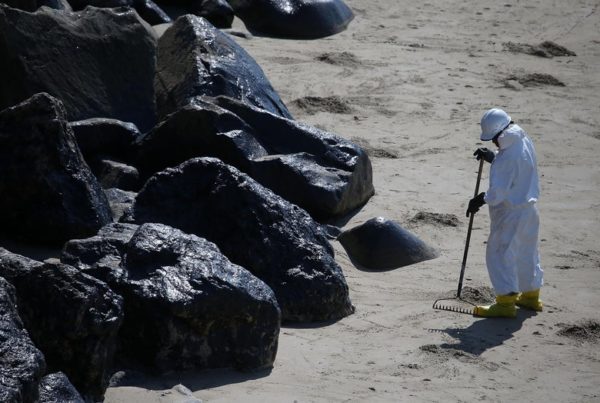WASHINGTON – The House Judiciary Committee told a federal appeals court Monday that it still needs to hear from former White House counsel Don McGahn about potential obstruction of justice, though the House voted to impeach President Donald Trump on other charges.
The committee argued in a 19-page filing that McGahn was a witness to several of Trump’s efforts to undermine investigations, as described in special counsel Robert Mueller’s report on Russian interference in the 2016 election. McGahn’s testimony could inform the House’s arguments at the Senate trial and the testimony could lead to “new articles of impeachment,” the committee said.
“That the House has impeached President Trump has not mooted this case and it has reinforced the Committee’s need for this Court’s expeditious resolution of this appeal,” the committee wrote. After an eight-month wait for the testimony, the committee said in its filing that the “wait for McGahn’s testimony should end now.”
A three-judge panel of the D.C. Circuit Court of Appeals – Judges Karen Henderson, Judith Rogers and Thomas Griffith – is scheduled to hear oral arguments Jan. 3 about whether to enforce a committee subpoena that McGahn defied in May.
After the House impeached Trump on Wednesday by accusing the president of abuse of power and obstruction of Congress, the appeals court asked the committee whether it still needed to hear from McGahn, and if so, whether for the impeachment inquiry or simply as a matter of legislative oversight. The Justice Department opposed compelling McGahn to testify and urged the appeals court to dismiss the committee’s request to enforce the subpoena.
The Justice Department filed an argument Monday that the impeachment shouldn’t end the case but that the court should dismiss the committee’s lawsuit to avoid becoming embroiled in a dispute between the other two branches of government at the height of political tension.
The House cited the McGahn case as part of its impeachment article on obstruction of Congress.
“This Court should decline the Committee’s request that it enter the fray and instead should dismiss this fraught suit between the political branches for lack of jurisdiction,” the Justice Department argued in its 10-page filing.
The case could redefine the relationship between the legislative and executive branches of government. Other potential witnesses in the impeachment inquiry, such as acting White House Chief of Staff Mick Mulvaney and former national security adviser John Bolton, said they wanted clarification from the courts about whether they could be forced to testify because such cases are rare and disputed.

The committee subpoenaed McGahn because he was a key figure in Mueller’s probe. McGahn defied the subpoena in May, claiming immunity from being forced to testify because close advisers to the president should be allowed to keep their communication confidential.
McGahn told Mueller’s investigators about several episodes of possible obstruction by Trump as he sought to remove the special counsel or curb his investigation. Trump argued that he cooperated with the inquiry by having McGahn testify and that Mueller was never removed.
Rather than focusing on the Mueller probe, the House approved two articles of impeachment based on the House Intelligence Committee’s findings about Trump’s dealings with Ukraine. The House alleged Trump abused the power of his office by pressuring Ukraine to investigate a political rival, then obstructed Congress by stonewalling the investigation.
A Senate trial to decide whether Trump should be removed is likely in January. House Speaker Nancy Pelosi, D-Calif., hasn’t sent the articles to the Senate. Trump said he expects to be vindicated in the Republican-led Senate after what he called a partisan “witch hunt” in the Democratic-led House.
The Judiciary Committee investigated Trump’s actions during the 22-month Mueller inquiry for possible obstruction of justice. U.S. District Judge Ketanji Brown Jackson rejected the White House’s claims of absolute immunity, saying the president “does not have the power” to prevent his aides from responding to congressional subpoenas.
“Today, this Court adds that this conclusion is inescapable precisely because compulsory appearance by dint of a subpoena is a legal construct, not a political one, and per the Constitution, no one is above the law,” Jackson wrote.
“Stated simply, the primary takeaway from the past 250 years of recorded American history is that Presidents are not kings,” Jackson wrote.
McGahn could invoke executive privilege “where appropriate,” Jackson said, citing a court ruling that concluded former President George W. Bush’s White House counsel must testify before Congress. The judge said it is “widely accepted” that the president can assert executive privilege to protect potentially sensitive topics.
In appealing the case, the Justice Department argued “that Mr. McGahn is absolutely immune from compelled congressional testimony” and that there was a “significant chance” the appeals court would agree.



